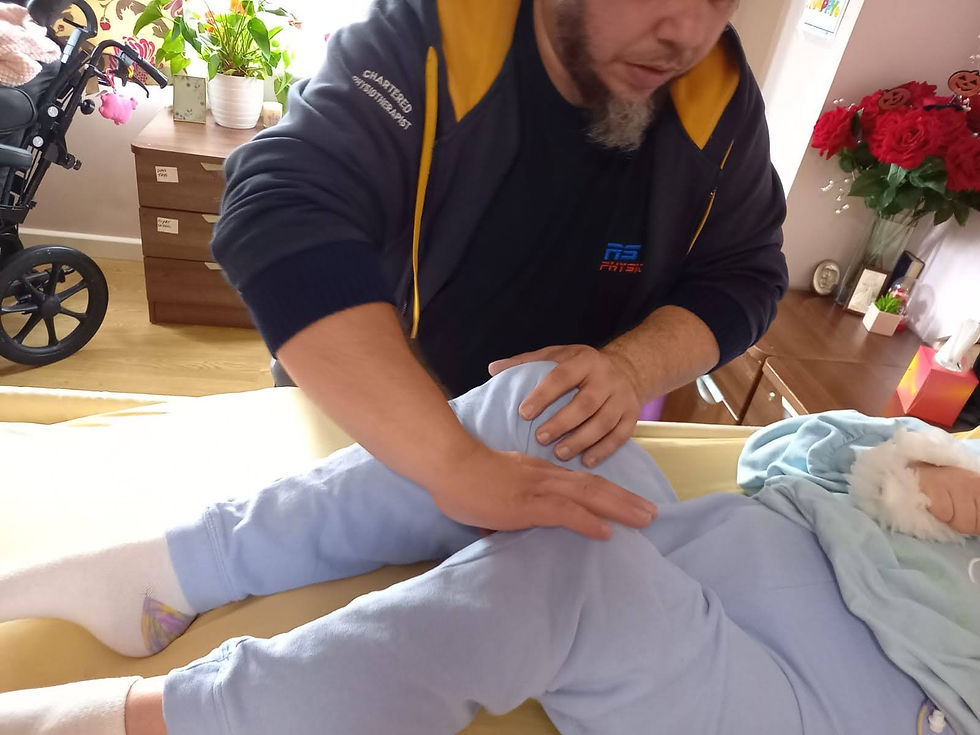STROKE? IS TASK ORIENTATED TRAINING an answer for your plateaued out rehabilitation program?
- Pawel Ciecierski MSc Physiotherapy MCSP HCPCreg

- Jan 22, 2022
- 2 min read
Updated: Jan 24, 2022

We know from clinical studies that so called “task orientated training” will enhance general rehabilitation program, by challenging the brain by adding an elements of problem solving (eg planned transferring, walking from A to B) will improve cognitive function, memory, speed of thinking as well as distractibility.
Mix of physical activities and task orientated exercises may support your brain to regain abilities and protect from the aging.

I found some evidence that task orientated rehabilitation and repetitive exercises can activate neuroplasticity and strengthen deep brain networks even up to 20 years after stroke, long after conventional therapies plateau.
As we can observe great benefit from task orientated treatment, it’s unclear what training parameters are most effective. This must be individually planned and implemented by the treating clinician, taking in account cardiovascular and respiratory status.

In the UK most of the people with reduced ability to walk receives some sort of clinical, supervised rehabilitation.
Less than we wish due to the covid-19.
Walking is usually part of this program.
But remember – it is important to extend and continue your activities beyond medically supervised physiotherapy sessions.
One of my patients, Gloria (89y.o.) asked me how many times a day she need to do her exercises to regain her mobility.
I advised her – every time when she will see her husband Norman (92y.o.) getting up to make her cup of ta or pass her anything she needs, to do her low level prescribed exercise. Little but often is the best approach. Don’t be discouraged. Small gains every week will bring major gains over the months. Just be consistent.

From my observation most rehabilitation programs provided by the state end within 6-12 sessions (please tell me that’s not true) after the original episode. There is a lack of consistency, if they fall or start losing mobility they get an assisted device, if they having problems with movement and motor skills they get course of physiotherapy and then they are back on their own.

There is a difficulties to access specialised facilities and programs on the regular basis to prevents and slow down deterioration process. Long term interventions are a key for a long-term wellness.
Just remember. You will not get better by watching television, sitting on the chair or staying in the bed for hours and hours.

Start setting small goals and always prise yourself with achieving them.
Make your goals Specific, Measureable, Attainable, Relevant and Time-Based. Make them SMART. If you struggle ask your friendly physiotherapist, doctor, nurse how to do it and NEVER GIVE UP.
Good Luck





Comments